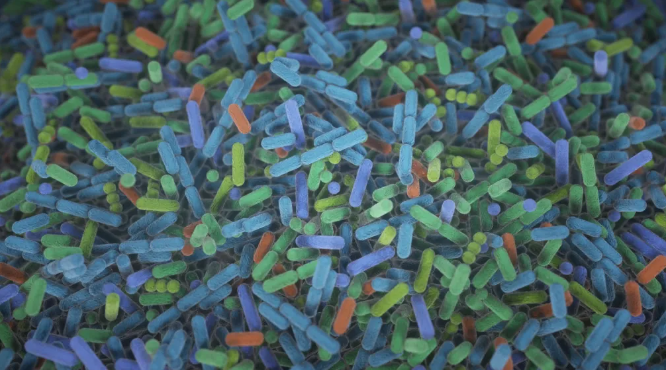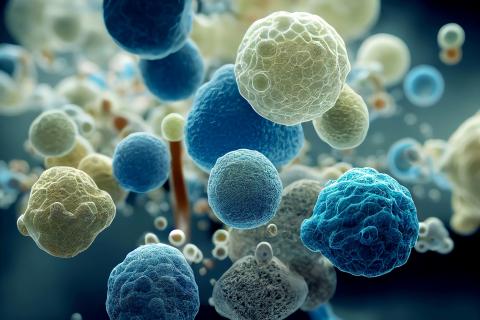Gut microbiota markers associated with autism spectrum disorder identified
Research has identified 31 biomarkers in the gut microbiota of children that are associated with autism spectrum disorder (ASD) and could have diagnostic value. The gut microbiota includes bacteria, viruses, fungi and archaea. The team replicated the results, published in Nature Microbiology, in three cohorts and analysed faecal samples from more than 1,600 children and children in total, with and without ASD, in China.

Ruth Ann - microbiota TEA EN
Ruth Ann Luna
Director, Medical Metagenomics at the Texas Children's Microbiome Center
Associate Professor at Baylor College of Medicine (US)
This type of comprehensive study with adequate and varied control cohorts is much needed to further study the gut-brain axis in autism spectrum disorder (ASD) in depth. The inclusion of other neurodiverse populations, as well as three separate ASD cohorts, clearly contributes to the robustness of this overall study.
The inclusion of diet, gastrointestinal symptom profiles and medication history is crucial, and the only missing piece is a comprehensive behavioural profile, which is especially important as we begin to assess how many of these findings apply specifically to individuals with severe or profound ASD.
Toni Gabaldón - microbiota TEA EN
Toni Gabaldón
ICREA research professor and head of the Comparative Genomics group at the Institute for Research in Biomedicine (IRB Barcelona) and the Barcelona Supercomputing Center (BSC-CNS).
The study uses appropriate methodology and quality data. Of note is the high number of samples and their good characterisation in terms of diet and lifestyle factors, which are factors that strongly influence the gut microbiome. They also make the effort to recruit complementary cohorts and reanalyse public data to see the robustness of their results.
That children on the autism spectrum have a different gut microbiota has long been known, but most studies are based on analysis of the bacterial component and at the level of taxonomic composition. Using shotgun methodologies, where the entire DNA of the sample is sequenced and not just marker genes, this study gives a more complete picture, looking at changes in archaea, fungi and viruses, and providing insight into potential metabolic changes associated with changes in microbiota. It also has a particular focus on biomarker discovery and proposes a panel of 31 species that discriminate quite well.
As always, it should be remembered that correlational studies need to be confirmed by more targeted studies to determine whether any cause-effect relationship can be established. The study finds some metabolic pathways involved in neurotransmitter synthesis, which establishes an interesting hypothesis about a possible functional relationship, which should be established in future studies. Computational predictors trained on data need to be tested in other situations and with new data sets, as they tend to work very well in contexts similar to those in which they were trained, but may fail in other situations.
Current diagnosis is made on the basis of behavioural patterns that appear over time; adopting early biomarkers that could help detect autism earlier could facilitate earlier initiation of therapies. If there are metabolic changes that influence the progression of symptoms and could be compensated by diet or use of probiotics, modulation of the microbiota would open a door for new treatments to improve some aspects.
Mireia Vallès - microbiota TEA EN
Mireia Valles-Colomer
Head of the Microbiome Research Group, Department of Medicine and Life Sciences, Pompeu Fabra University
Siew Ng and co-workers have conducted the largest study to date on the composition of the gut microbiome in patients with autism spectrum disorder. This area has been the subject of considerable debate, as previous studies comparing the composition of the microbiome in children with autism versus control groups had found alterations but these varied between studies. In 2021, a paper was published suggesting that the alterations observed in previous studies were a consequence of diet and not an intrinsic feature of autism. This is plausible, as children with autism often exhibit avoidance or refusal behaviours for certain foods, which can lead to a more restrictive diet. However, errors were detected in the paper and a correction was published in January this year, although it does not appear to change the overall conclusion.
Siew Ng's study confirms that diet explains some of the alterations in the microbiome, but even after controlling for this factor, differences are still detected. To do this, they analysed new samples and reanalysed data from previous studies. In addition, they did not limit themselves to examining the composition of the bacterial fraction of the microbiome (as many studies do), but also looked at archaea, viruses and fungi. Although the methodology has some debatable points, the data are publicly available, which will allow other teams to verify whether they reach the same conclusions.
Qi Su et al.
- Research article
- Peer reviewed
- People



